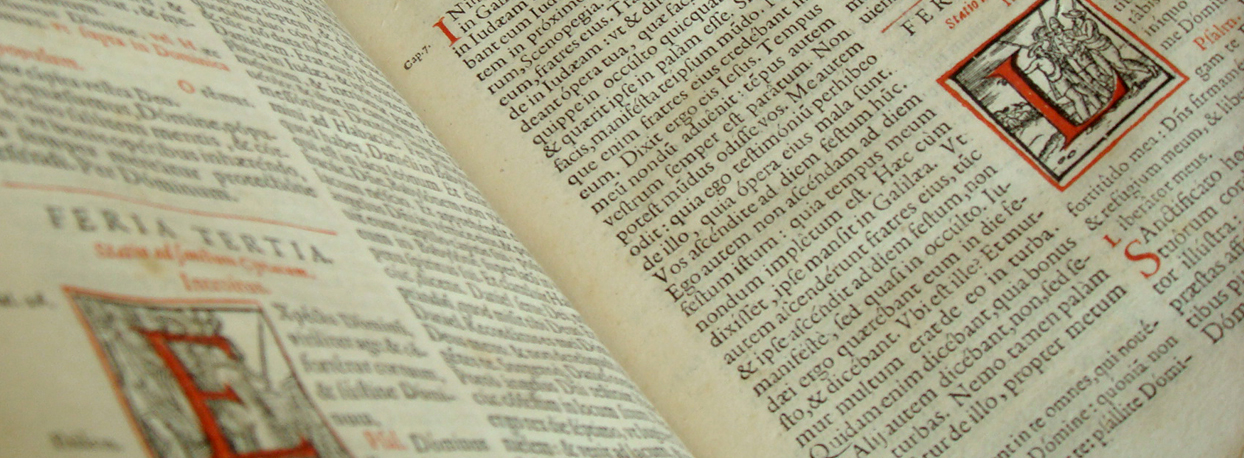
Certificate in Philosophical Foundations for Ministry
This semeter-long program explores foundational themes in philosophy that prepares ministers or ministry candidates to understand the relationship between theology and philosophy, and to express their ideas coherently and clearly. Classes will meet in Fall 2023. Details are below under General Information.
The study of philosophy and ethics is foundational to the discernment of questions of ultimate concern: What is the good life? What is right and wrong, and how do we know? What is knowledge and what are its sources? What is the mind? What is justice? What is the basic nature of reality? Does God exist?
Based on the principle that all ministry simultaneously advances and is supported by truth claims, the Philosophical Foundations for Ministry professional certificate program has a threefold goal: to expose students to the classic questions of philosophy, to assist students in exploring and testing their own philosophical questions and positions, and to foster in the students the ability to express their ideas in a philosophically sound way.
Argumentation is the lifeblood of this program, not only in the form of identifying and understanding the arguments of others, but also in being able to formulate and defend your own. In this vein, there is an intimate, mutually-reinforcing relationship between knowing what you believe to be the case about a particular author, text, position, etc. and expressing what you believe to be the case, both orally and in essay/exam form. As such, this program will devote significant time to examining how to read an argument and structure a response to it.
Who Should Participate
This foundational program is open to all, but has been especially designed for those preparing to serve or currently serving in ministry.
Program Benefits
By the end of the program students will be able to:
- Describe the impact of philosophy on past and present society and to begin to critically examine their own ideas about truth, methods of thinking, and the nature of reality
- Describe the impact of ethical thinking on past and present society and to begin to critically examine their own ideas and practices of good and bad and right and wrong
- Demonstrate improvement in the capacity to read, write, and argue (both orally and in written form) in a philosophical-ethical context
Credit from this program may be applicable to some level of professional certification at the discretion of the certifying diocese. Please be sure to check with the appropriate diocesan office to confirm that this program qualifies.
General Information
Course and program requirements, schedules and tuition are subject to change; and additional fees may be incurred for books and materials. Click here to review all policies prior to enrollment. For additional information, contact the Center at (310) 338-2799 or crs@lmu.edu.
-
Begins: Fall 2023
Enroll: Enrollment is now open
-
- Location TBA
PHLX 801 - Introduction to Philosophy / Introducción a la filosofía
Date
Class
Saturday, September 30
Zoom - 9am to 12pm
Wednesday, October 4
Zoom – 5:30pm to 6:45pm
Wednesday, October 11
Zoom – 5:30pm to 6:45pm
Saturday, October 14
Face to Face (LMU) 9am to 12pm
Wednesday, October 18
Zoom – 5:30pm to 6:45pm
Wednesday, October 25
Zoom – 5:30pm to 6:45pm
Wednesday, November 1
Zoom – 5:30pm to 6:45pm
Wednesday, November 8
Zoom – 5:30pm to 6:45pm
Wednesday, November 15
Zoom – 5:30pm to 6:45pm
Wednesday, November 22
No class due to Holiday
Wednesday, November 29
Zoom – 5:30pm to 6:45pm
PHLX 820 - Ethics / La ética
Date
Class
Saturday, December 2
Zoom - 9am to 12pm
Wednesday, December 6
Zoom – 5:30pm to 6:45pm
Wednesday, December 13
Zoom – 5:30pm to 6:45pm
Wednesday, December 20
No class due to Holiday
Wednesday, December 27
No class due to Holiday
Wednesday, January 3
Zoom – 5:30pm to 6:45pm
Saturday, January 6
Face to Face (LMU) 9am to 12pm
Wednesday, January 10
Zoom – 5:30pm to 6:45pm
Wednesday, January 17
Zoom – 5:30pm to 6:45pm
Wednesday, January 24
Zoom – 5:30pm to 6:45pm
Wednesday, January 31
Zoom – 5:30pm to 6:45pm
Saturday, February 3
Zoom - 9am to 12pm
-
Students must complete a total of 9.0 semester hours in coursework with a letter grade of 'C+ or higher in each course to receive a certificate of completion. Please refer to the course catalog for required text, class meeting location, and other general information.
Coursework: PHLX 801 and PHLX 820
-
PHLX 801
Introduction to Philosophy
4.5 semester hoursThis course introduces students to the study of philosophy, covering the topics of logic and language, metaphysics, theories of knowledge, philosophy of religion, and political philosophy. Some of the questions include: “What is the good life?”, “What is right and wrong, and how do we know?”, “What is knowledge and what are its sources?”, “Is it possible that we know nothing at all?”, “Does God exist?”, “Could we ever know?”, “What is the mind?”, “What is justice?”, “What is the basic nature of reality?”
PHLX 820
Ethics
4.5 semester hoursThis course focuses on the philosophical discipline of “ethics” in particular. The course critically examines fundamental questions in ethics, such as, “What is the difference between morality and ethics?”, “What defines good and evil and how do we arrive at such definitions?”, “How is ethics related to virtue and good character (and vice and bad character)?”, “Is it necessary to postulate the existence of God in order to identify real, rationally-binding moral principles?”, “What kind of ethical theories exist and how do we distinguish among them?”, “How can we apply theoretical ethical thinking to concrete, everyday life, including complex moral problems?” Prerequisite: PHLX 801